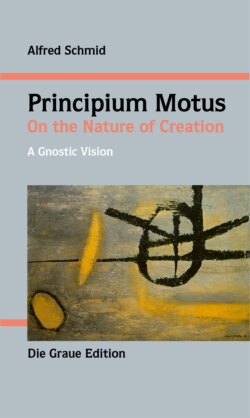Описание книги
Eie Art Gegenentwurf zu den heute gängigen Auffassungen der Naturwissenschaft. «Felder» und «Kräfte», wie sie die Physik kennt, werden verworfen. Vielmehr beruht alles Geschehen in Natur und Kosmos allein auf der Fähigkeit, aus sich selbst wirken und von sich aus handeln zu können. Physik und Metaphysik bilden eine Einheit, Schöpfer und Schöpfung fallen zusammen. Das Buch erschien in deutscher Sprache 2007, die englische Übersetzung durch Michael Hauskeller soll den potenziellen Leserkreis erweitern.
In The Marvel of Light – An Excursus (1957, engl.: East-West Publications 1984 / Graue Edition, ISBN 978-3-906336-94-7), Alfred Schmid (1899-1968) indicated that he was planning to write and publish a sequel, entitled Principium motus. Alfred Schmid worked on this sequel until his death, but did not quite manage to complete it. Based on the original handwritten manuscript, the existing chapters were first published in 2007 in order to make it easier for Schmid's work and ideas to be used to inform the contemporary discourse around matter and mind, physics and metaphysics, that takes place everywhere in the border regions of science, philosophy, and religion. To allow even wider access and to reach an international audience, this is now followed by the publication of the book's first English translation. The Principium motus provides an antidote to currently prevailing interpretations in the natural sciences. The «fields» and «forces» that physics still operates with are rejected, and everything that happens in nature and the cosmos is shown to rest solely on the ability of all things to act freely and of their own accord. This ability is the principium motus the book's title refers to: it revokes the separation between physics and metaphysics, and Creation and Creator become one. Alfred Schmid's «vision», speculative as it may be, is that of a scientist. In his younger years, he was a professor of physical chemistry at the University of Basel, as well as a successful inventor, before he addressed himself to more philosophical and religious questions. Professor Wolfram Schommers, who has provided the introduction and a postscript, is a theoretical physicist with posts held in Europe, China, and the United States. The translator, Michael Hauskeller, is a professor of philosophy at the University of Liverpool.
In The Marvel of Light – An Excursus (1957, engl.: East-West Publications 1984 / Graue Edition, ISBN 978-3-906336-94-7), Alfred Schmid (1899-1968) indicated that he was planning to write and publish a sequel, entitled Principium motus. Alfred Schmid worked on this sequel until his death, but did not quite manage to complete it. Based on the original handwritten manuscript, the existing chapters were first published in 2007 in order to make it easier for Schmid's work and ideas to be used to inform the contemporary discourse around matter and mind, physics and metaphysics, that takes place everywhere in the border regions of science, philosophy, and religion. To allow even wider access and to reach an international audience, this is now followed by the publication of the book's first English translation. The Principium motus provides an antidote to currently prevailing interpretations in the natural sciences. The «fields» and «forces» that physics still operates with are rejected, and everything that happens in nature and the cosmos is shown to rest solely on the ability of all things to act freely and of their own accord. This ability is the principium motus the book's title refers to: it revokes the separation between physics and metaphysics, and Creation and Creator become one. Alfred Schmid's «vision», speculative as it may be, is that of a scientist. In his younger years, he was a professor of physical chemistry at the University of Basel, as well as a successful inventor, before he addressed himself to more philosophical and religious questions. Professor Wolfram Schommers, who has provided the introduction and a postscript, is a theoretical physicist with posts held in Europe, China, and the United States. The translator, Michael Hauskeller, is a professor of philosophy at the University of Liverpool.
